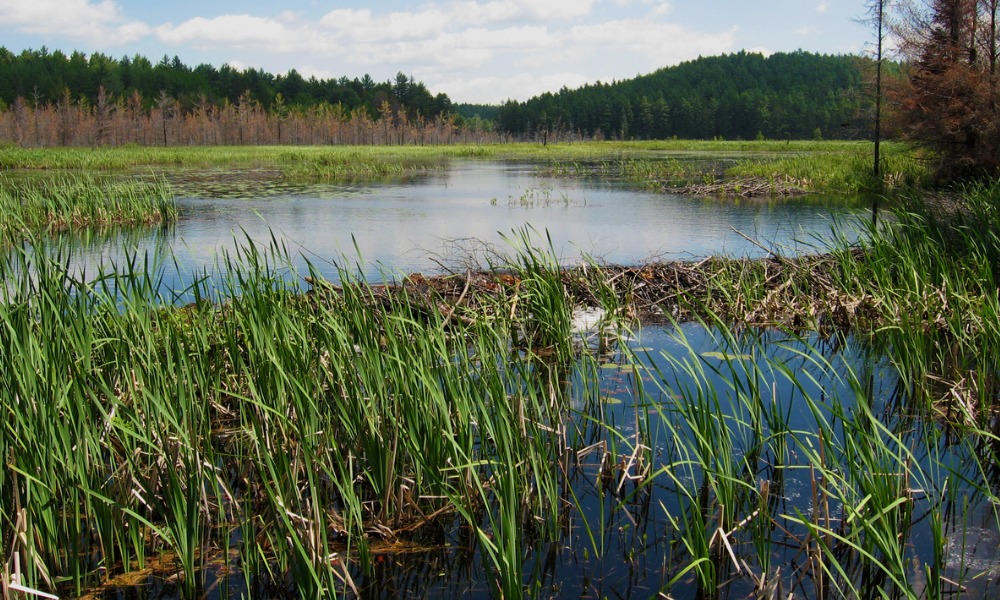
A horse-riding ring was built without permission near a protected wetland

The Ontario Superior Court has refused to award damages allegedly sustained by a property owner because of an interim injunction to protect an environmentally sensitive wetlands.
In Halton Region Conservation Authority v. Thomas, 2023 ONSC 5404, the applicant Halton Region Conservation Authority obtained a time-sensitive interim injunction to restrain the respondents, Peter and Jean Thomas, from selling their farm property unless they complied with a remediation and probation orders previously issued by the Ontario Court of Justice.
The case stemmed from the respondents building a horse-riding ring on their property. They were convicted of four offences for violating the Conservation Authorities Act by unlawfully undertaking development without permission within 120 metres of a provincially significant wetland. The court sentenced the respondents to remediate their property. The remediation order was registered on the title to the property; however, it did not prohibit them from selling the property.
The property remediation was not completed within the timeline provided in the probation order. The respondents retained an environmental geoscientist to advise regarding a remediation plan, but they made no other tangible effort to address the remediation order by the time of the interim injunction.
The respondents listed the property for sale, advertising the riding ring as a feature. They also unilaterally attempted to have the remediation order removed from title to the property so they could sell it with a clear title, but the registrar for land titles refused to discharge the remediation order without a further court order.
In 2022, the respondents accepted a conditional offer to purchase the property. However, the sale was eventually aborted because the potential purchasers expressed concern over the apparent misrepresentation of the riding ring as an amenity of the property when it was subject to a removal order.
The respondents brought the case to the Ontario Superior Court of Justice, seeking damages on the ground that the injunction against them was excessive overreach and unnecessary. They alleged it denied them the opportunity to sell the farm at the height of the real estate market over the winter of 2022.
The court noted that the applicant is a public body and is presumed to be acting in the interests of the public by ensuring the property was remediated. The court also said protecting and preserving the provincially significant wetlands is in the public interest. The court further noted that there was also a presumption of irreparable harm and that no exceptional circumstances warrant the refusal of an injunction.
The court explained that the interim injunction was limited in scope and only restrained the respondents from "transferring, selling, or gifting the property until it was remediated." The respondents were free to deal with the property provided they complied with the remediation order.
In February 2022, the respondents signed a "suspension of listing" agreement. However, the court found that the suspension of the listing agreement did not assure the applicant that the property would not be re-listed for sale or sold privately during the period for the adjournment. The court noted that the suspension of listing did not prohibit the respondents from selling the property. It simply paused the listing agreement signed with their real estate broker. The court pointed out that the parties could have quickly terminated the agreement, and it did not have any bearing on a private sale. As a result, the court concluded that the interim injunction was appropriate in the circumstances.
The court emphasized that the interim injunction was necessary to protect the public interest and to maintain the status quo. Furthermore, the court said that if the respondents had successfully negotiated a sale of the property before the commencement or completion of the remediation, there was no means by which to enforce the remediation order against the new purchasers. The respondents could have easily avoided their obligation to remediate with a property sale.
The court found that the applicant sought to protect the environmentally sensitive wetlands and had acted in the public's best interests by obtaining an interim injunction to restrain the respondents from dealing with the property prior to its remediation. Under these circumstances, the court decided to exercise its discretion, finding that the respondents were not entitled to a determination of any damages sustained.